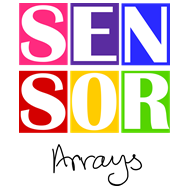Polish title: Wykorzystanie jonoczułych sond woltamperometrycznych w układach typu elektroniczny język do wykrywania pigułek gwałtu w próbkach rzeczywistych
Funding source: National Science Centre Poland (NCN)
Project number: 2023/50/E/ST4/00639
PI: Emilia Witkowska Nery
Total funding: 2 788 554,00 PLN
Timeframe: 01/08/2024 -31/07/2029
Short description
The primary objective is to develop an electronic tongue based on redox- and ion-sensitive voltammetric sensors. These sensors will be rigorously tested on real samples of drugs and food products. The resulting system will enhance the understanding of designing sensor arrays for detecting non-trivial analytes in samples with varying background signals, such as pollutants in wastewater, pesticides in food, and biomarkers in body fluids.

Date-rape drugs, which can incapacitate individuals and make them vulnerable to theft and sexual assault, pose significant detection challenges due to their lack of color, taste, and odor, as well as their short half-life in the body. Prevention, rather than post-hoc analysis, is crucial. Providing potential victims with a means to detect these drugs using specialized sensors is a practical approach.

However, the variety of molecules involved (such as gamma-hydroxybutyric acid, gamma-butyrolactone, butane-1,4-diol, and benzodiazepines) and the wide range of sample types (including alcoholic and non-alcoholic beverages and food) complicate the development of a comprehensive detection solution.
The project involves collaboration with forensic labs and two laboratories in Spain specializing in recognition molecules and nanomaterials.
The proposed project will be divided into two parts, each developed by a PhD student with the help of the supervisor and MSc/BSc students. One person will be responsible for the development of a versatile electronic tongue by testing redox and ion sensors for the detection of date rape drugs, food measurement and algorithm development. The main objectives will be to test the limits of the setup, analyse the requirements for classification (presence of any drug (Y/N)), qualitative (type of drug present) and quantitative analysis (type and amount of drug present) and last but not least to develop guidelines for other complex samples. The other PhD student will work on the development of a point-of-care device. Initially, the focus will be on miniaturising the ion sensor into a paper-based format and testing model compounds. Next, the use of the miniaturised sensor to detect date rape drugs and finally the development of a point-of-care electronic tongue. The main objectives for this part of the project will be to develop a method for paper-based label-free monitoring of ionic species and later to test which setup is most versatile for Y/N classification (has smallest footprint, least troublesome electrodes, long shelf life, able to perform repeated measurements).
